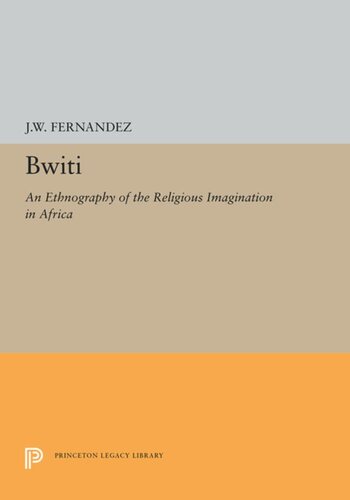

Most ebook files are in PDF format, so you can easily read them using various software such as Foxit Reader or directly on the Google Chrome browser.
Some ebook files are released by publishers in other formats such as .awz, .mobi, .epub, .fb2, etc. You may need to install specific software to read these formats on mobile/PC, such as Calibre.
Please read the tutorial at this link: https://ebookbell.com/faq
We offer FREE conversion to the popular formats you request; however, this may take some time. Therefore, right after payment, please email us, and we will try to provide the service as quickly as possible.
For some exceptional file formats or broken links (if any), please refrain from opening any disputes. Instead, email us first, and we will try to assist within a maximum of 6 hours.
EbookBell Team

4.1
40 reviewsWe cannot, the author argues, adequately understand the religious imagination without knowing the historical, social, and cultural matrices from which it arises. Accordingly, his book explores the Fang culture of Gabon as a set of contexts from which emerges the Bwiti religion. In addition to experience with missionary Christianity, Bwiti uses a great reservoir of images and ideas from its own past. Professor Fernandez analyszes how they are recreated into a compelling religious universe, an equatorial microcosm.
Part I, a detailed ethnographic account of Fang culture after colonial encounter, addresses the attendant problems. The author discusses the European influence on the self-concept of the Fang, family life and kinship, and political and economic relationships. Part II analyzes in greater detail the religious implications of European administration and missionary efforts. In Part III the author shows how the malaise and increasing isolation of part of Fang culture achieve some assuagement of the Bwiti religion, which seeks a reconciliation of the past and present.
James W. Fernandez is Professor of Anthropology at Princeton University and author of many studies in this discipline.
Originally published in 1982.
The Princeton Legacy Library uses the latest print-on-demand technology to again make available previously out-of-print books from the distinguished backlist of Princeton University Press. These editions preserve the original texts of these important books while presenting them in durable paperback and hardcover editions. The goal of the Princeton Legacy Library is to vastly increase access to the rich scholarly heritage found in the thousands of books published by Princeton University Press since its founding in 1905.